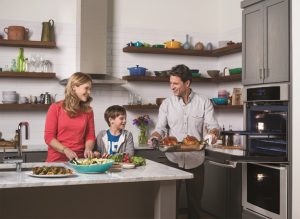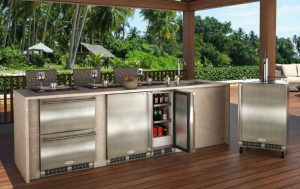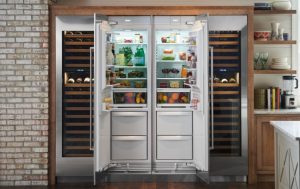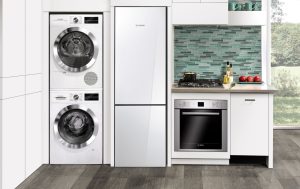How to be a More Efficient Cook

Most of us give very little thought to the energy used when cooking. While you may think about the time spent preparing a meal, you may not have thought about what gas or electricity was used. Although quick meals can be a boon when you are busy, you may be inadvertently wasting energy, so here are some ways you can be a more energy efficient cook.
Clean Your Drip Pans and Burner Caps Regularly
Keeping your cook surfaces clean and tidy is not just about keeping your kitchen looking presentable, it can actually impact your energy efficiency. A dirty surface cannot reflect the heat as effectively as a polished one, so it wastes energy. So, while you may be in the habit of wiping down your cooktop, be sure to clean your drip pans and burner caps regularly. This will improve the energy efficiency and prevent any debris accumulating to cause a clog that will compromise the performance of your appliance.
Match Burner Size to Your Cookware
Unless you have an induction range or cooktop, using mismatched cookware means that you’re wasting energy heating the air around your pot or pan. One of the most appealing aspects of induction cooking is that it is 20% more efficient compared to electric cooktops and up to 70% more efficient compared to gas. This is because induction heats the cookware through magnetic fields, so only the pot is heated, and the surrounding surface is not. Unless you’re planning on upgrading your cooktop, you can mitigate the energy loss by always using an appropriate sized pan or pot for the burner you’re using. For example, don’t put your small 1 quart saucepan on the massive “power burner” of your cooktop.
Cover Your Pans and Pots
If you’re trying to boil water or keep a dish at a simmer, it is a good idea to put a lid on your pan or pot. Covering a pot will retain the heat more efficiently, helping water to boil more quickly as pressure is created and evaporation is prevented. Unless you have a very delicate dish that must be kept at a low simmer, covering the pan or pot will help to retain the heat without using excessive amounts of energy.
Think If You Really Need to Preheat
Unless you need precise temperatures for a delicate dish or you’re baking, there is no real need to preheat your oven before you put your food in. If you’re cooking a casserole, you can put it in as soon as you switch on the oven. This will not only save time, but it can reduce the overall cooking time. You will need to take care as some oven models only use the upper heating element while the oven is reaching your desired temperature, so watch out if you’re using an uncovered dish.
Switch off Early
Unless you have an induction stove, there will be residual heat left on your burners and oven after you’ve switched off. So, why not take advantage of this and switch off a few minutes before you dish has completely finished cooking. The residual heat will help to finish off the dish, and it won’t cost you anything in gas or electric.
Double Up
Finally, if you’re making a dish from scratch, why not make double. You can eat one-half straightaway and have the remainder for another meal later. Heating up leftovers takes far less energy than making a meal from scratch, and you may even be able to use your microwave, which will use even less energy.
An efficient cook needs to start with an efficient stove, so if you’re considering an upgrade, you should consult this online collection of stoves, ranges, and ovens to explore your options or speak to a home appliance specialist for further help.
- What Are Flush-Mount Appliances: Flush-Mount Appliances Explained
- What Appliance Brands Hold Their Value the Longest
- Designing the Ultimate Outdoor Bar: Must-Have Appliances for Year-Round Fun
- Luxury Refrigerator Guide 2025: Built-In vs. Freestanding and What to Know Before You Buy
- How Smart Appliances Are Changing Luxury Kitchen Design in 2025
- The Ultimate Outdoor Grill Guide for 2025: Built-In vs. Freestanding
- Smart Bathroom Faucets & Fixtures in 2025: Blending Technology with Luxury Design
- Built-In Coffee Machines: Are They Worth It for Your Kitchen in 2025?
- How to Choose the Right Dishwasher for Your Home: Noise, Capacity, and Features Explained
- Top 5 Kitchen Appliance Colors and Finishes for 2025 (And How to Match Your Style)






